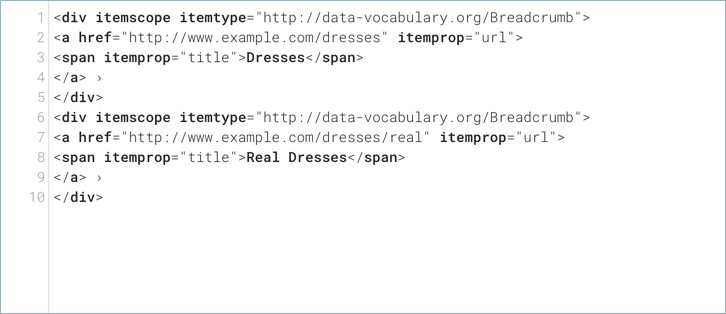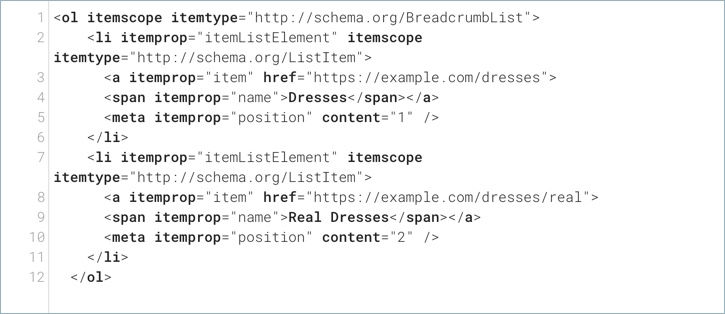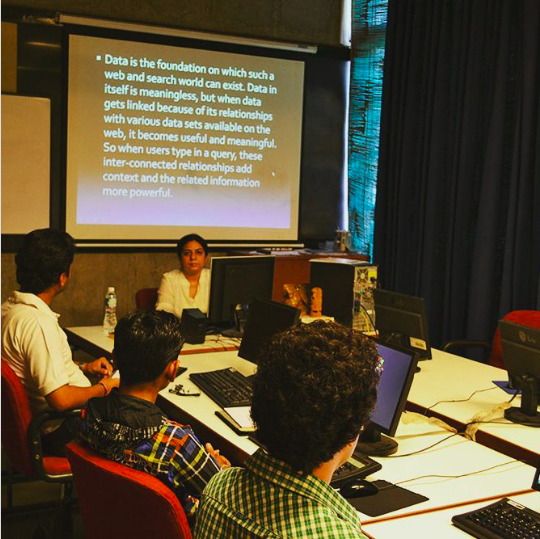Structured data is a standardized format for providing information about a page and classifying the page content; for example, on a recipe page, what are the ingredients, the cooking time and temperature, the calories, and so on.
The use of structured data helps Google :
- To Understand the content of the page
- To Enable special search result features and enhancements
Structured data schemas such as schema.org and data-vocabulary.org are used to define shared meaningful structures for markup-based applications on the Web.
Google announced today as schema.org is more popular and is widely being used so they will focus only on one SD scheme that is schema.org.
From April 6, 2020 onwards, data-vocabulary.org markup will no longer be eligible for Google rich result features.
Starting today Google will warn the developers via search console regarding the pages using the data-vocabulary.org. This will help the developers to make the necessary amends on the pages to remain eligible for Google rich result features.
Google Search supports structured data in the following formats, unless documented otherwise:
| Format | Description and Placement |
| JSON-LD* (Recommended) | JavaScript notation embedded in a <script> tag in the page head or body. The markup is not interleaved with the user-visible text, which makes nested data items easier to express, such as the Country of a PostalAddress of a MusicVenue of an Event. Also, Google can read JSON-LD data when it is dynamically injected into the page's contents, such as by JavaScript code or embedded widgets in your content management system. |
| Microdata | An open-community HTML specification used to nest structured data within HTML content. Like RDFa, it uses HTML tag attributes to name the properties you want to expose as structured data. It is typically used in the page body, but can be used in the head. |
| RDFa | An HTML5 extension that supports linked data by introducing HTML tag attributes that correspond to the user-visible content that you want to describe for search engines. RDFa is commonly used in both the head and body sections of the HTML page. |
Google recommends using JSON-LD for structured data whenever possible.
Microdata is a component of HTML5 aimed at adding more semantics and contextual information to existing content on a page. By doing so, Microdata provides the search engines or browsers, with more information about the content of a page.
Microdata is an attempt to provide a simpler way of annotating HTML elements with machine readable tags than the similar approaches of using RDFa and Microformats.
Microdata vocabularies provide the semantics, or meaning of an Item. Web developers can design a custom vocabulary or use vocabularies available on the web.
A collection of commonly used (and Google Supported) Microdata vocabularies located at http://data-vocabulary.org which include: Person, Event,Organization, Product, Review, Review-aggregate, Breadcrumb, Offer, Offer-aggregate. Major search engines rely on this markup to improve search results. Content expressed as microdata on the web page gets correlated easily to the data vocabulary it is giving information about making it easy for the search engine find relevance and connectivity.
Google clearly mentions in its blog that in order to be eligible for Google rich result features we recommend converting your data-vocabulary.org structured data to schema.org.
For example, here is how you would change the data vocabulary to schema.org
Data-vocabulary.org

Schema.org

In order to be sure that you are using the correct structured data format on the page you can test the page as follows:
- You can test any code snippet live on Rich Results Test by pasting it into the search box.
- You can test the page for structured data on the Structured Data Testing Tool
- If you have any questions or comments, check out the Google Webmasters community.





